Pūrākau : MAUAO
| There were once four maunga that sat among the many hills and ravines on the edge of the forests of Hautere. There was Pononga (a slave or servant) and a great chiefly maunga: a forested peak which stands as a landmark for the tribes of Tauranga Moana. To the south-west was the shapely form of a beautiful maunga: a woman clothed inall the fine greens of the ferns and shrubs and trees of the forest of Tāne. Out to the east stood a fourth lonely maunga peering back into the forest from a distance behind Pononga. This lonely maunga longed to see the beautiful shapely maunga, but because his view of her was obstructed, he grew jealous and thus became known as Harawene. Pononga was desperately in love with the beautiful shapely maunga. However, her heart was already won by the majestic form of the chiefly maunga who had diverted a flow of water in order to sustain her kakahu of fine greenery. Thus, this chiefly maunga, became known as Ōtānewaiknuku. The new flow of waters also gave rise to the name of the beautiful shapely maunga; she was now known as Pūwhenua. There seemed no hope for the lowly slave maunga with no status to persuade the beautiful Pūwhenua to become his bride. In his deep sorrow and despair, Pononga decided to end his suffering by drowning himself in Te Moananui a Kiwa – the great Pacific Ocean. He called on the patupaiarehe, the folk with mythical powers who dwelled in the forests of Hautere. They were his friends and with their magic, they plaited great ropes in order to haul Pononga from the hill country toward the ocean. As they pulled on their ropes, they chanted their magic chant : Arise you who slumber Prepare ourselves Prove our manhood Heave to the west Heave to the south Move heaven and earth It awakens, It loosens, shudders Haul toward the stormy east wind That the sky may feel The tang of salt spray Of the turbulent thundering waves Wi Wi wi Wa Wa Wa A! ha! ha! Cast your eyes heavenward Toward Venus, the evening star, To light the path To the ocean of Tangaroa, The god who lures many into his embrace, Into eternal darkness. Alas, the birds have awakened Dawn has come. The patupaiarehe chanted this karakia as they hauled Pononga from his place among the hills at Waoku; they gouged out the valley where the river Waimapu now flows and they followed the channel of Tauranga Moana past Hairini, past Maungatapu and Matapihi, and past Te Papa. The patupaiarehe pulled Pononga right to the edge of the great ocean of Kiwa. But the breaking of dawn started to creep up on them; and as the sun rose, the first rays lit up the summit of Pononga and fixed him in that place. The patupaiarehe, who were folk of the night, fled away before the light of the sun and made haste back to the shady depths of the forests and ravines of Hautere. The patupaiarehe gave a name to this maunga which marks the entrance to Tauranga Moana. He was called Mauao which means caught (Mau) by the dawn (ao), or lit up by the first rays of sunrise. In time, he assumed greater mana than his rival, the chiefly maunga of Hautere. Upon the arrival of the waka Tākitimum, Mauao was also given another name, Maunganui, meaning the great mountain. Mauao is still the symbol of the tribes of Tauranga Moana: Ko Mauao te maunga, Ko Tauranga te moana. |
Waiata
Click here
Waiata – E Hika
Waiata – He Pātere mō Tauranga Moana
Waiata – Papaki Tū Ana
Waiata – Tauranga Moana
Waiata – Tauranga Moana Medley
Waiata – TE KARAKIA A RUAWHARO
Waiata – Tū Mai
Kiriata
Click here
Kiriata – Waka Huia – Ngairo Eruera
Other resources :
Click here
Nuku Reo :
Click here
